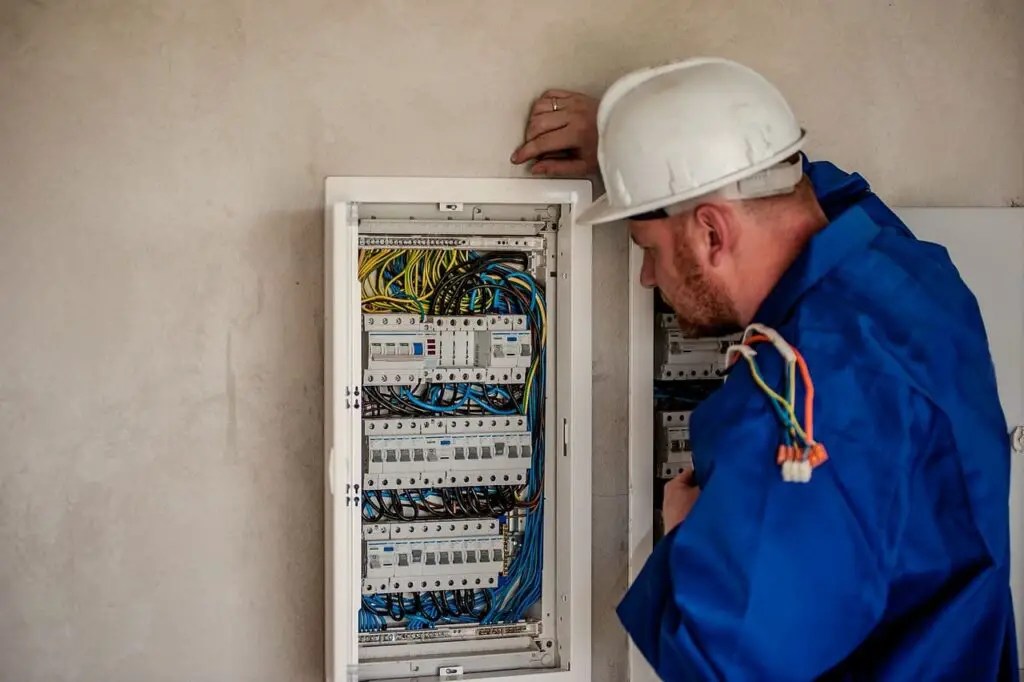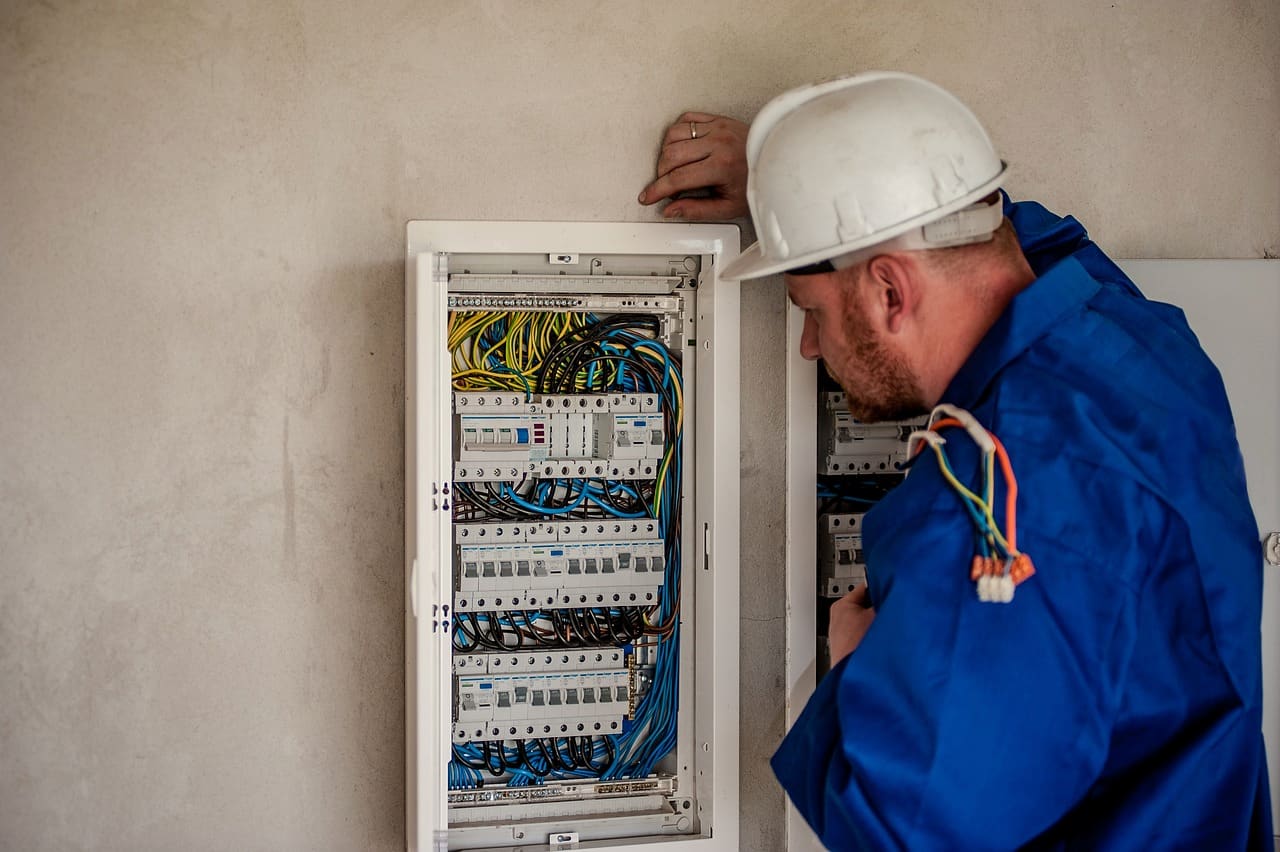Electrician Salary in New Zealand: 2024 Guide

Electricians are one of the most in-demand professions in New Zealand. All industries and even business sectors require an electrician in their workforce. So, qualified electricians can expect great income and added benefits while working in New Zealand.
Certified electricians in New Zealand have an annual average salary of anywhere between NZ$58,072 and NZ$95,000. Hourly rates start at NZ$34.13, and opportunities are more abundant in bigger cities like Auckland. Freshly graduated electricians make about NZ$56,742 (NZ$35 per hour), while electricians with multiple years of professional experience can earn more than NZ$90,000.
New Zealand is a fantastic place to work as an electrician, both in terms of income and lifestyle. This country thrived on trade, so many people make a good living without attending university. This article explains how much an electrician earns in New Zealand, variations between cities & regions, qualifications and experience required for this job, and the difference between a contracting vs self-employed electrician.
Learn more about salaries in New Zealand in the dedicated guide.
How much do electricians earn in New Zealand?
Electricians are one of the most in-demand and crucial professionals in all of New Zealand. Qualifications and expertise in the field can result in an annual average salary ranging between NZ$58,072 and NZ$95,000.
That said, employers offer decent wages depending on several factors, such as qualifications, experience, skills, and location. If you consider the hourly rates of an electrician, NZ$34.13 is offered on average.
In terms of weekly and monthly wages, electricians in New Zealand earn NZ$1,063 per week and NZ$4,112 per month as of May 2023.
We are all aware of how challenging and complex the job of an electrician is. From technical skills to problem-solving skills and even people skills, electricians put in a lot of effort to get the job done!
With different levels of experience and education, the salaries vary. As you go higher up the hierarchical chain, your income is sure to get better.
- The entry-level positions for freshly graduated electricians start at NZ$64,350 per year.
- The average electrician’s salary increases to about NZ$70,931 per year as professional experience increases.
- Most experienced, leading electricians with a greater number of responsibilities can expect to make up to NZ$95,000 annually.
Keep in mind that electricians in New Zealand are often paid an hourly rate. Therefore, the more hours you are willing to work, the more you earn. With a typical rate of NZ$40 per hour and working 40 hours per week, one can make about NZ$83,200 a year before taxes.
There are a total of 2,778 vacant job positions for electricians available across New Zealand as of May 2023.
Auckland being the largest city in New Zealand, offers better opportunities and fewer risks for those wishing to work as electricians. Currently, there are 860 vacant positions in Auckland which is a good chance compared to other cities.
Auckland City has the highest paying salary for those in the electrician career at around NZ$71,801 annually. Cities nearby Auckland maintain this average wage, but the numbers start to drop as you move farther away from Auckland.
Wellington City has an average annual salary of NZ$69,347, and Hamilton offers NZ$66,248 per year for qualified electricians.
When it comes to earning an income for any job, there are certain certifications, roles, and functions that cause the difference in pay rates. Different types of electricians, such as commercial electricians, maintenance electricians, and electrician assistants, have different salaries according to their job requirements.
A commercial electrician earns an average annual salary of NZ$83,200 by performing electrician duties in commercial settings. Industrial electricians make the most at the rate of NZ$86,756 per year.
Maintenance electricians earn a median salary of NZ$76,502, while electrician assistants work for a wage starting at NZ$64,833.
Salary of an employed vs self-employed electrician
Most electricians in New Zealand prefer to work as part of a large, mainstream organization because that offers prospects of a steady income. Worksafe requires many industries to have on-site electricians, so there is hardly any shortage of suitable employment opportunities.
Some experienced electricians go down the path of self-employment by working as contractors or starting their own company, but that is only recommended once you have a stable income and considerable savings.
As a self-employed electrician, you get paid more per hour, but you are responsible for paperwork, such as taxes and insurance, along with the increased liability.
Generally, a self-employed electrician (contractor) can make anywhere from NZ$35 to NZ$60 per hour based on experience and reputation.
If you want to become a self-employed electrician, you will be heavily reliant on marketing (traditional and online) to spread the word. Even with word-of-mouth and marketing, you will get work off and on from individuals who might need you once or twice a year only.
So, it’s better to opt for a waged job offer or be a contractor if you have certainty about the future load of work.
Requirements to work as an electrician in New Zealand
First, you need to consider the visa requirements for working as an electrician in New Zealand. Because electricians are on the long-term skill shortage list in New Zealand, it is pretty simple to get access to a visa.
Or you can apply for a work-to-residence visa to work in New Zealand as an electrician. The visa period depends on your contract, skills, and market trends and dynamics.
Secondly, an essential requirement to work as an electrician in New Zealand is to acquire a New Zealand registration and practicing license. For a New Zealander, registration requires qualifications and experience both.
However, as a foreigner, if you have an equivalent registration or license for your work in your motherland, you can also use it here. But this is valid only under conditions like having a Limited Certificate.
Registration for overseas/ foreign applicants has the following five steps:
| Step 1 | Assessment (apply for registration) |
| Step 2 | Get approved with conditions or declined |
| Step 3 | Get Limited Certificate (Trainee Limited Certificate) |
| Step 4 | Apply to complete the registration. Apply for registration and a practicing license (NZ based). |
| Step 5 | Apply to complete the registration. Apply for registration and a practicing license (NZ based). |
By following the five steps mentioned above, you will land a position as an electrician in the Kiwi work field. The essential requirement is to have a qualified pathway and experience pathway in your career.
And lastly, qualifications, experience, and skills play a crucial part in landing a job as an electrician in New Zealand.
Qualifications requirements:
| National Certificate in Electrical Engineering – Electrician for Registration (Level 4) |
| National Certificate in Electricity Supply – Electrician (Level 4) |
| New Zealand Certificate in Electrical Engineering Theory and Practice (Trade) (Level 4) |
| New Zealand Certificate in Electrical Trade (Level 4) with strands in General Electrical, and Electricity Supply |
Read more about vocational qualifications and apprenticeships. It’s the right way to become an electrician in NZ!
Experience:
To be eligible to work as an electrician in New Zealand, you must complete the following requirements:
- Cover the Electricians’ Theory coursework and required examination
- Complete the Electricians’ Regulations coursework and the required examination
- Complete the Electricians’ 3-stage practical examination
- Pass the safety training within a limited time
- Have 4 years of practical work experience in the field
Skills
Not only in New Zealand but electricians anywhere in the world need to have the following essential skills to get the work done:
- Knowledge of basic electrical theories, laws, codes of conduct, and standards of practice
- How to provide instant first aid and other workplace safety procedures
- Basic mathematics and physics know-how
- Professional usage of hand and power tools
- Critical thinking and problem-solving skills
When applying for a job in New Zealand, you need to include a cover letter. Check out our guide on how to write a perfect one!


![How To Master a Cover Letter for New Zealand [Examples & Tips]](https://simplenewzealand.com/wp-content/uploads/2023/06/pexels-liza-summer-6347902-1-768x503.jpg)


![Salaries in New Zealand vs the UK: Where You Get Paid More? [2024]](https://simplenewzealand.com/wp-content/uploads/2022/11/Depositphotos_508131346_L-768x512.jpg)
![Salaries in New Zealand vs Australia: Let’s Be Real [2024]](https://simplenewzealand.com/wp-content/uploads/2023/06/pexels-david-peterson-4359064-2-768x689.jpg)
